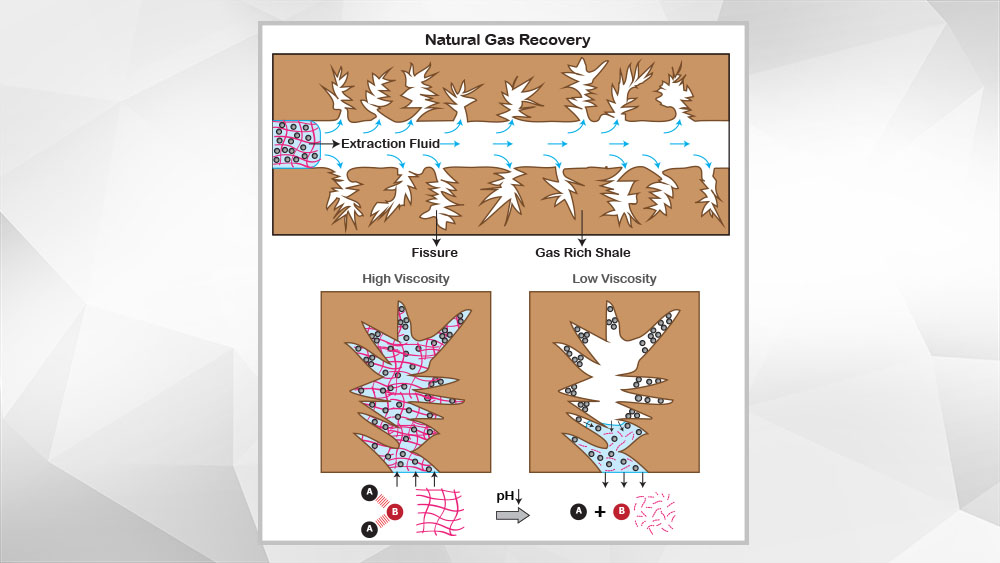
Researchers in the Artie McFerrin Department of Chemical Engineering at Texas A&M University have been awarded a $1.8 million grant from the Department of Energy (DOE). Dr. Mustafa Akbulut, associate professor, and Dr. Joseph Sang-II Kwon, assistant professor, are leading the research project aimed at enhancing the productivity of unconventional fossil fuel reservoirs. Their research will focus on a new class of viscosifying agents they developed.
In 2016, natural gas overtook coal as the leading fuel used in U.S. utility-scale electricity generation. According to the U.S. Energy Information Administration (EIA), natural gas accounted for more than one third of utility-scale electricity generation in 2018. Further, since 2017 the U.S. has been a net exporter of natural gas (exporting more than it imported). Net U.S. natural gas exports doubled from 2018 to 2019, and the EIA is projecting that these numbers will double again by 2021.
When extracting natural gas from unconventional sources, large amounts of fluid are pumped into a reservoir, increasing pressure enough to create cracks in rock formations, allowing trapped natural gas to flow freely to the surface where it is collected. The fluid used in this process has two main purposes. First, it creates cracks in the rock formations. Second, it distributes proppant along the cracks. Proppant is a solid material, most often sand, that holds the cracks open. Two of the main ways to increase the effectiveness of the extraction process are to increase the viscosity of the fluid and to introduce favorable interactions between the fluid and proppant.
One of the main issues with extracting natural gas from unconventional sources is the wide variability of conditions from source to source. To combat this issue, Akbulut and Kwon have developed dynamic binary complexes (DBCs), a new class of viscosifying agent. DBCs are incredibly flexible and have super-adjustable characteristics, making them ideal for use in the extraction of unconventional fossil fuel reservoirs. The DOE grant is being used to further the development of improved viscosifiers that can be used under elevated temperatures, pressures and salinity to improve oil and natural gas recovery from unconventional reservoirs.
This project is aimed at creating commercially viable DBC formulations. The researchers will investigate properties of DBC-based fluids and interactions of DBCs with a commonly used proppant, with the goal being the development of the best DBC formulation.
After identifying the most optimum DBC formation, the researchers will perform a full-scale field test. This test is crucial as it will allow the research team to test the market validity of DBCs. The research team has partnered with Incendium Technologies, LLC to create a pilot-scale reactor system to produce large amounts of the selected DBCs needed in field tests.